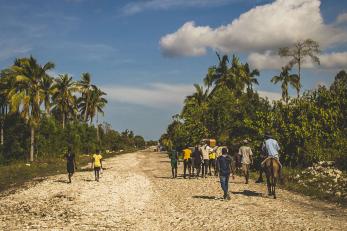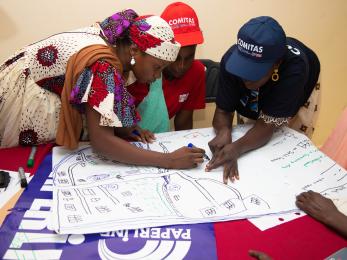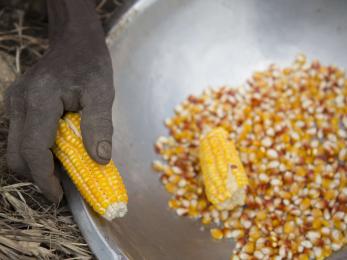Haiti: Scenario Forecasting to Support Humanitarian Planning

In early March 2024, heighted insecurity due to gang violence amid a worsening political crisis disrupted the capital of Port-au-Prince and exacerbated the humanitarian crisis across Haiti.
In June 2024, more than 578,000 people were displaced across the country - a 60% increase since March 2024, and an estimated 7.7 million people are consuming insufficient amounts of food.
Insecurity has further limited humanitarian access, and the turbulence has revealed the severe impediment that the lack of timely, easily accessible information and analysis poses for response efforts, future planning, and coordination between peer organisations. In response to critical information gaps, Mercy Corps Haiti Crisis Analysis Team has produced a scenario forecasting report outlining possible national-level developments in conflict, and the likely repercussions including changes in needs, humanitarian access, and implications for internally displaced persons (IDPs).
Key possible developments include:
- The first and likely conflict development scenario sees a progressive enhancement in security due to the deployment of the Multinational Security Support Team (MSS). The role of the MSS is to help the Haitian National Police (PNH) secure main routes and zones of the Metropolitan area of Port-au-Prince, currently occupied and controlled by the gang coalition Viv Ansanm. Securing routes and zones will increase accessibility into Port-au-Prince and allow for emergency humanitarian assistance in high-risk areas where it has previously been challenging to maintain support.
- The second and very likely conflict development scenario predicts a temporary escalation in conflict between the PNH and Viv Ansanm forces, as the latter upscales its offensive and defensive tactics to combat MSS and PNH operations to dismantle the coalition. This would lead to increased violence in zones of confrontation and temporarily restricted access for humanitarian workers.
- The third and less likely conflict development scenario is that Viv Ansanm members will infiltrate the southern and northern departments of Haiti, blocking access in and out of the capital via main routes. This would bring humanitarian access to a standstill and further impede vital supply routes for both humanitarian aid and the local economy.
- The almost certain repercussion scenario predicts that the population of IDPs in Port-au-Prince will continue to expand as violence escalates between Viv Ansanm and MSS and PNH forces. This would exacerbate high economic stressors on local markets for host communities, predominantly in the southern and northern departments of the country.


